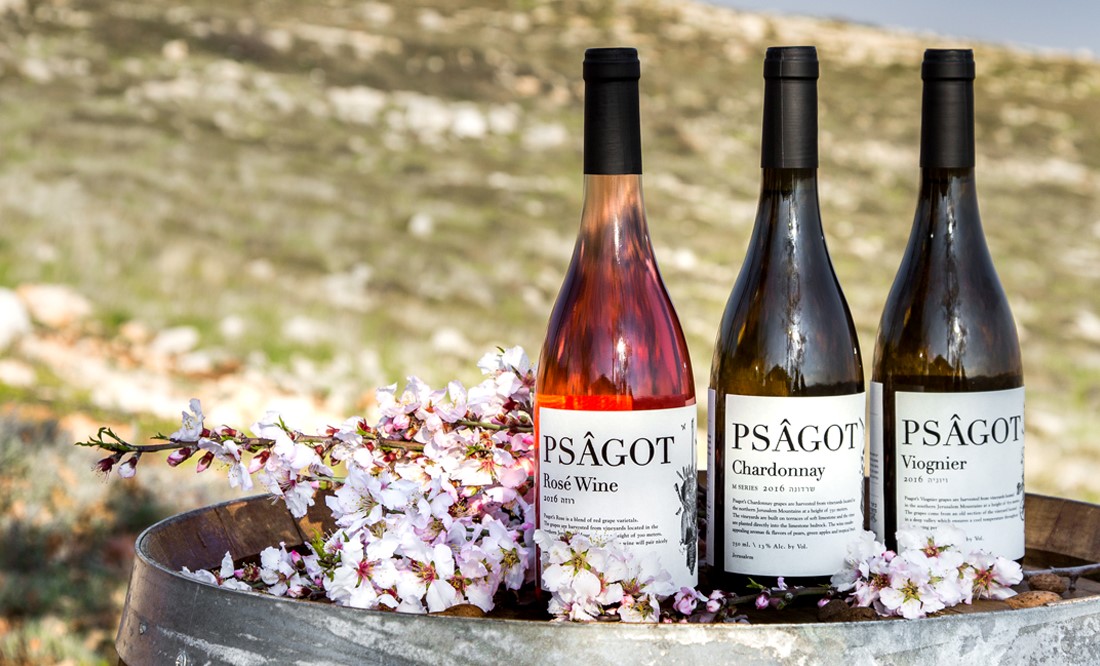Thirteen Israeli notables published an open letter on Friday, November 15, saying they welcomed the European Court of Justice’s ruling earlier this same week that settlement products need to be labeled as such, but said the move is insufficient and the European Union must ban the import of settlement goods altogether.

PSÂGOT wines produced in the settlement of that name north of Jerusalem, in the occupied Palestinian West Bank (Photo: Psagot Winery)
“Israeli settlements are the leading cause of human rights violations against Palestinians, and settlement expansion is destroying the possibility of a two-state solution. By banning goods that originate in Israeli settlements, Europe would help support the differentiation between Israel per se and settlements in the occupied territories,” reads the letter that was published in the British newspaper The Guardian.
“We believe that the occupation is morally corrosive, strategically shortsighted, and thoroughly detrimental to peace. The international community has taken insufficient action in addressing this reality. Europe continues to support the occupation financially by allowing trade with Israeli settlements, which are illegal under international law.”
The letter was signed by former speaker of Knesset and head of the Jewish Agency Avraham Burg; former lawmaker Mossi Raz; former ambassador to France Prof. Eli Barnavi; former Israeli ambassador to South Africa, Namibia, Botswana, and Zimbabwe Ilan Baruch; former attorney general Prof. Michael Ben-Yair; former ambassador to South Africa and Turkey Alon Liel; former Israeli ambassador to the Czech Republic Erella Hadar; Israel Prize winners Prof David Harel, Prof Yehoshua Kolodny, Photographer Alex Levac, Prof David Shulman and Prof Zeev Sternhell; EMET Prize Laureate Photographer Miki Kratsman.
The European Court of Justice took on the case after Psagot Winery — which is located in a settlement by the same name just north of Jerusalem — challenged a 2016 ruling by a French court that said goods produced in the occupied Palestinian West Bank, East Jerusalem and the Syrian Golan Heights must be labeled as originating in an Israeli settlement.
In its decision Tuesday, November 12, the 15 judges of the European Court of Justice wrote that it was necessary to label Israeli settlement goods as such “to prevent consumers from being misled as to the fact that the State of Israel is present in the territories concerned as an occupying power and not as a sovereign entity.”
The court further stated that Israeli settlements “are characterized by the fact that they give concrete expression to a policy of population transfer conducted by that state outside its territory, in violation of the rules of general international humanitarian law.”
A label that merely stated “Made in the West Bank” was insufficient, the court said, because customers would not have a way of knowing that the product they are considering purchasing originated in a locality established “in breach of the rules of international humanitarian law.”
According to the Luxembourg-based court, “Foodstuffs originating in the territories occupied by the State of Israel must bear the indication of their territory of origin, accompanied by the fact those foodstuffs come from an Israeli settlement within that territory, by the indication of that provenance,” the court — the EU’s highest legal instance — said in a press release.
Palestinian officials on welcomed the court’s ruling, and urged European countries to implement “what is a legal and political obligation,” senior Palestine Liberation Organization official Saeb Erekat said in a statement. “Our demand is not only for the correct labeling reflecting the certificate of origin of products coming from illegal colonial-settlements, but for the banning of those products from international markets,” he added.
Related: Letter by Israeli notables published in The Guardian, November 15, 2019


